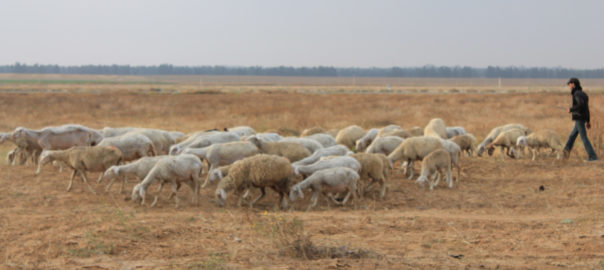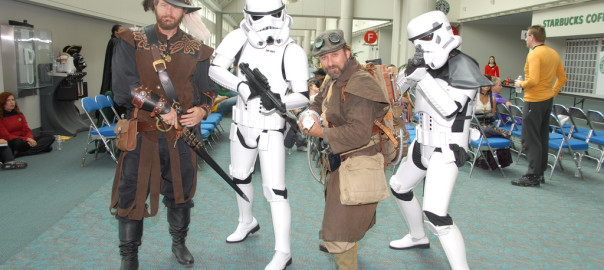When my children were younger, one of our favorite books to read to them was an illustrated picture book of Psalm 23 by the artist Tim Ladwig. The words of the picture book are simply the King James version of the psalm, illustrated by a day in the life of an African American brother and sister. The pictures are simple — the boy and girl get up in the morning, their grandparents serve them breakfast, they go to school and then come home in the evening to a big dinner, warm bath, and comforting bedtime.
The words of the psalm, combined with Ladwig’s illustrations, show us how God cares for these two children. Small details in the illustrations — a family Bible, a stained glass window of Jesus — suggest that their grandparents and teachers are people of faith. Potential danger and hardship surround the children. Some rough-looking young men give the children a hard look on their way to school, and the absence of their parents suggest difficulties in their young lives. But this is the message of the Psalm — God cares for us in the middle of our messy, dangerous lives.
It’s amazing that we can relate so easily to yhis Hebrew poem, written 2,500 years ago, set squarely in the context of David’s life as a shepherd, soldier, and king[1]. It opens with the powerful image of God as a shepherd caring personally for us – his sheep – with food, water, rest, and guidance. I can imagine young David herding his own sheep and meditating on God’s care for himself.
The second stanza darkens the mood – the speaker is now travelling through the valley of the shadow of death. Yet God still protects him. The rod and staff, the tools that a shepherd uses to herd his sheep, now serve as defensive weapons, protecting the sheep from wolves, poachers, and other dangers. Whether facing Goliath in battle, or on the run from Saul the mad king, David had many opportunities to rely on God’s protection.
The final stanza of the poem shows us a celebration – a great feast! Enemies are still present, but the mood is joyful. Tim Ladwig illustrates this verse by showing the children enjoying a delicious homecooked meal with their grandparents while the unsavory elements of their neighborhood pass by on the sidewalk outside. I always imagine this a huge outdoor buffet on picnic tables draped with red checked tablecloths.
The psalm began with simple provisions: food, water, rest. Now, however, we celebrate a lavish feast, with more food and drink than we can handle. The psalm ends with eternal promises of goodness and righteousness. English has a difficult time translating Hebrew poetry, in part because modern English has so many more words than ancient Hebrew. In Hebrew poetry, certain words grow in importance and meaning, to the point that they are like complex, booming chords played on a pipe organ whenever they appear. Tov and chesed — goodness and righteousness — are two of these words. They are symbols of the work that God is doing in the world: goodness, righteousness, loving-kindness, everything-is-right-ness. More than just a feast of food and drink, God invites us to a feast of making everything right with the world, beginning with ourselves.
Photo via Flickr by Joe Catron
- Though traditionally attributed to King David, the Hebrew subtitle — literally “a psalm of David” — is ambiguous. It could mean that David is the author, but it could also mean that the psalm is simply about David or written in reference to him. ↩



